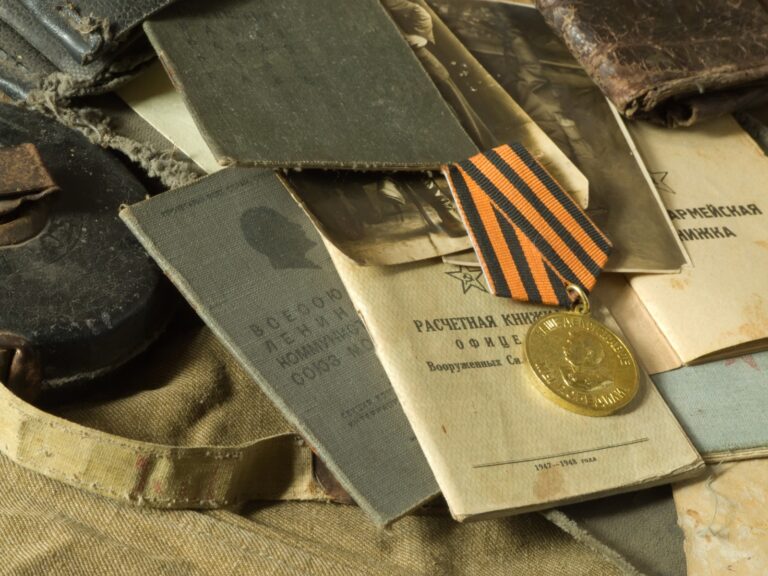Interest in genealogy and heritage research has increased, especially around significant historical anniversaries such as World War II or the Vietnam War. People can now use their DNA ancestry tests to reveal their family origins.
Although DNA tests can provide details about genetic information, military records are vital in adding historical context, allowing you to thoroughly understand your family’s historical journey. You can perform a military lookup by name to find information about an individual’s service record.
How Military Records Shed Light on Family Histories
Genealogy finds great value in military records, which commonly provide detailed information about the servicemember and often include information about their family. Card abstracts from muster rolls, returns, and pay vouchers create a service record that can help comprehend an ancestor’s rank, unit, and service duration. They store personal information, medical records, and sometimes family information, making them a powerful way to investigate concealed histories.
Additionally, pension applications and payment records reveal more than financial data. These resources often include personal accounts of military service, marriage certificates, birth records, family correspondence, and death certificates. These memories help you better grasp the everyday challenges and successes your ancestors experienced, which can fortify your relationship with them.
The Influence of Bounty Land Records
Those with ties to the conflicts in early US history, such as the Revolutionary War and the War of 1812, can discover insightful information by reading over bounty land applications. Veterans serve in the military and usually obtain land grants, which are rich sources of information on genealogical research.
Data on bounty lands serve as records of military service. They can simultaneously follow your family’s movement and settlement patterns, illustrating how the land affected and affected them.
Looking at Military Service Based on Significant Historical Events
Not only does listing military service honor individual efforts, but it also links relatives to significant historical events. No matter the contextualization of your family member – whether in the Civil War or World War I – these records provide an understanding of the vital historical narratives associated with their experiences.
Studying these people’s involvement in conflicts can help you gain insight into their lives and the effects of their experiences on future generations.
Using DNA Tests with Military Records to Construct More Complete Histories
With the recent integration of military documents and advanced methods such as DNA testing, a unique period for genealogy has emerged. DNA testing might show connections through genetics and point out unfamiliar relatives, but military records are necessary to get a historical perspective on those links.
Combining these approaches makes it more viable to monitor family ancestry beyond what DNA reports allow, as they furnish vital specifics for a richer and more nuanced family account.
Starting with Military Records Inquiry
When studying your genealogy, gathering all the family stories, documents, and military evidence you already have is helpful. Learning about the war or time your ancestors may have lived through will increase the quality of your study.
The National Archives and the National Personnel Records Center serve as treasure troves of military information, offering insights into conflicts ranging from the Revolutionary War to the present day.
Conclusion
Digging into military documents can result in a gratifying experience. Through these publications, one can uncover the personal experiences of service, bravery, and resilience, helping to shape a unique understanding of your family.
As the enthusiasm for genealogy continues to grow, particularly with the help of DNA testing and other advancing technologies, examining military records offers a vital way to know the more remarkable story of your family. Military records are critical whether you are just beginning your ancestry research or enriching the details of your family history.
FAQs
What is considered a military record?
The collection of files that outline a service member’s career, education, appointments, and release details is officially called an Official Military Personnel File (OMPF).
What choices are available for discovering military records?
You can easily access military service records digitally through eVetRecs, a system provided by the National Archives.
Can military records be accessed without cost?
Of course, gaining access to military records without cost is possible if the discharge date is fewer than 62 years old. Some services require a payment to access a DD Form 214.
Does Ancestry allow for the examination of military records?
Through its technology, Ancestry.com will enable you to find and access over 100 million documents regarding military history in the United States.
Who holds military records?
The National Archives in St. Louis, MO, keeps official records of service members kept by military personnel.
What are the components of Army service records?
Attending to specific elements brings detailed information from army service records, particularly attestation forms, instruction periods, and productivity assessments, into view.











